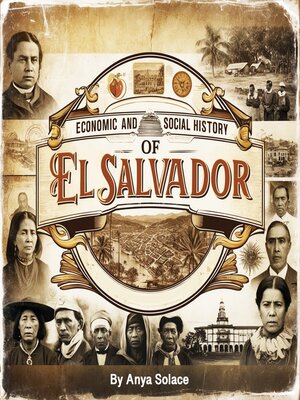
Sign up to save your library
With an OverDrive account, you can save your favorite libraries for at-a-glance information about availability. Find out more about OverDrive accounts.
Find this title in Libby, the library reading app by OverDrive.



Search for a digital library with this title
Title found at these libraries:
| Library Name | Distance |
|---|---|
| Loading... |
El Salvador, the smallest country in Central America, has a rich and complex history shaped by its geographic location, indigenous cultures, and colonial experiences. This chapter serves as an introduction to the key historical, economic, and social factors that have defined El Salvador's development, providing essential context for understanding its contemporary challenges and achievements.
The country's geographic features, including volcanic mountain ranges, fertile valleys, and extensive coastlines, have significantly influenced both its early human settlement and later economic development. El Salvador's topography has led to a concentration of population in the central valley area, where the capital, San Salvador, is located. Over time, this concentration of population has resulted in social and economic disparities between urban and rural areas. Additionally, El Salvador's location at the crossroads of ancient Mesoamerican civilizations played a key role in the cultural and economic foundations of its indigenous groups, such as the Pipil and Lenca, who developed sophisticated agricultural and trade systems long before Spanish colonization.
The indigenous peoples of El Salvador had complex social and political systems, with distinct languages, traditions, and economies. The arrival of Spanish conquistadors in the early 16th century brought dramatic changes. The conquest led to the decimation of indigenous populations through disease, warfare, and forced labor. Spanish colonization introduced European economic systems such as the encomienda system, which granted settlers control over indigenous labor in exchange for protecting and converting them to Christianity. This marked the beginning of a long history of exploitation and social stratification in El Salvador, which would have lasting effects on the country's development.







